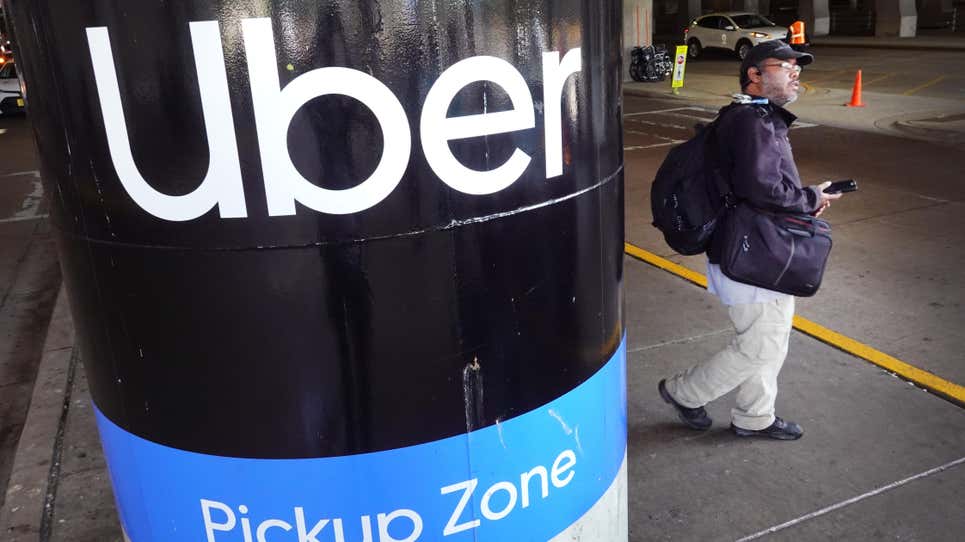A new settlement between the DOJ and Uber will allow the company to admit no wrongdoing, instead offering ‘millions’ in user compensation.
 |
| Photo: Scott Olson (Getty Images) |
Uber now has to pay an unspecified millions of dollars over allegations it was milking every cent it could from disabled riders who dared take an extra minute or two longer to get inside a car.
The U.S. Department of Justice said late Monday they’re inking a multi-million dollar settlement with Uber over a 2021 lawsuit alleging the company was charging people with physical disabilities “wait time” fees for the extra time it took them to enter a vehicle.
The agreement will give “several million dollars” in compensation to over 65,000 Uber users the department said were charged the discriminatory fees. The supposed wait times started to rack up only two minutes after a ride came to pick up users. The original complaint alleged more than 1,000 people with disabilities had complained of the wait time fees.
The DOJ’s suit also included stories of some disabled users, including one with quadriplegia who needed the assistance of a nurse to pack up their wheelchair. The passenger found out she had been charged a fee every time they got in a car. These complaints had been been going on for years, according to the DOJ, as the company launched the extra fees in 2016 in select cities before making the fee more widespread.
Considering the time frame of the suit, it really didn’t take too much time for Uber to hand over the cash, though of course this means the company denies any wrongdoing. The company has been under the microscope this past month since a recent report showed past Uber CEO Travis Kalanick led his company on an escapade of international influence campaigns to bend the law to his will. Internal documents revealed by The Guardian showed Uber worked to weasel its way into countries’ good graces to ease transportation regulations, even to the point of encouraging drivers to “violence” in rolling protests against French cab drivers. Uber vaguely mentioned its “mistakes” they made prior to 2017 in a message they posted after that report dropped.
The Wall Street Journal reported that fee had previously been described as less than 60 cents, but the company has previously had to shell out money before over another $1.1 million lawsuit that claimed drivers repeatedly denied a blind woman and her guide dog rides. In that 2021 suit, Uber tried to claim that it was the fault of the “independent contractors”—AKA drivers—who denied the blind woman rides. A judge disagreed with that assessment.
The ride hailing company had previously told Gizmodo that they disagreed their wait time policies violated the ADA. A representative previously said that the fees were not intended for those who had valid reasons to need more time to enter a vehicle, and that their policy was to refund fees for disabled riders. The company changed its policy to automatically waive fees for people who certify themselves as disabled before Uber dropped its lawsuit in Northern California district court.
According to the Justice Department, the settlement comes with a two-year agreement to advertise the wait time fee waiver program and refund policy, alongside confirmations the ride hailing company will reimburse people who are charged a wait time fee.
“This agreement sends a strong message that Uber and other ridesharing companies will be held accountable if their services discriminate against people with disabilities,” said Kristen Clarke, a DOJ assistant attorney general in the release. Although, as mentioned before, this settlement still means Uber gets to admit no wrongdoing, and the company already described it was trying to ensure refunds are available for those charged fees. So the wheel keeps turning, and turning, and turning...
Tags:
News
